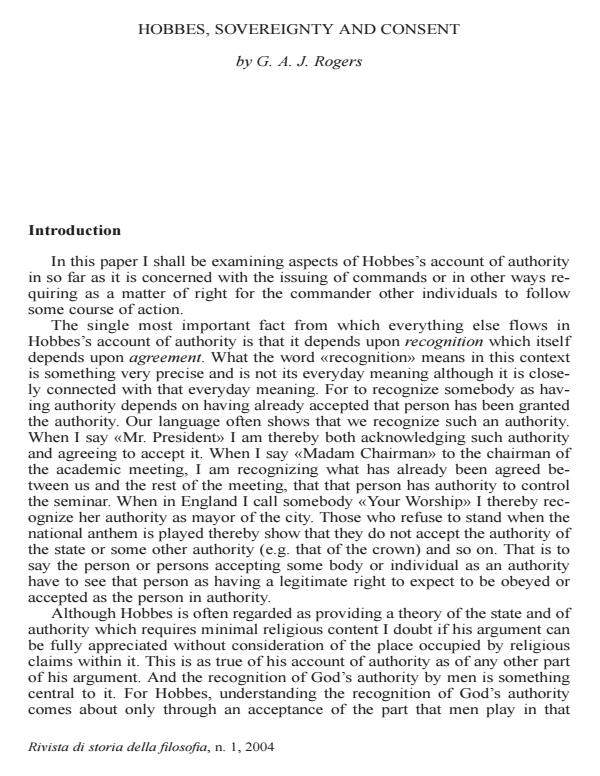Hobbes, sovereignty and consent
Journal title RIVISTA DI STORIA DELLA FILOSOFIA
Author/s G. A. J. Rogers
Publishing Year 2004 Issue 2004/1
Language Italian Pages 8 P. File size 34 KB
DOI
DOI is like a bar code for intellectual property: to have more infomation
click here
Below, you can see the article first page
If you want to buy this article in PDF format, you can do it, following the instructions to buy download credits

FrancoAngeli is member of Publishers International Linking Association, Inc (PILA), a not-for-profit association which run the CrossRef service enabling links to and from online scholarly content.
John Rogers explores the concepts of recognition, command and authority and tests their validity in several cases presented by Hobbes, ranging from parental authority to the omnipotence of God. The general thesis he defends is that, for Hobbes, autonomy always goes hand in hand with the possession of power. Even for the individuals in a civil society, there is no autonomy but in a condition of empowerment. But, at the same time, the strength of the laws of nature rests in their rationality, and there can be no doubt that their compelling force comes from their being rational. The comparison with mathematical theorems furnishes an important element of understanding, since the laws of nature are conclusions concerning that which conduces to the conservation of oneself. Although there is an empirical element in the deduction of those practical theorems, this is no objection to the analogy being drawn, since this empirical element belongs to the learning process and not to the rationality of the law itself. In the light of this conception of natural law, Hobbes thus appears as a rationalist in morals and politics.
G. A. J. Rogers, Hobbes, sovereignty and consent in "RIVISTA DI STORIA DELLA FILOSOFIA" 1/2004, pp , DOI: